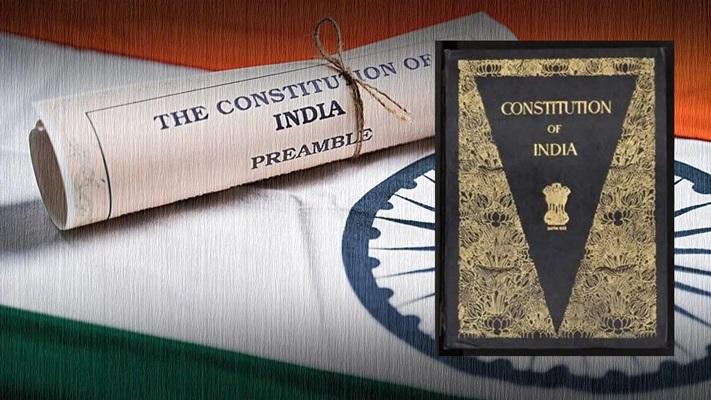Understanding Fundamental Rights in the Indian Constitution

The Indian Constitution, adopted in 1950, stands as a hallmark of democracy and civil liberties, representing the aspirations of over a billion citizens. At its core are the Fundamental Rights, enshrined in Part III of the Constitution, which safeguard individual freedoms and act as a check against the arbitrary exercise of state power. These rights, inspired by the Universal Declaration of Human Rights and various other constitutions, are essential for fostering an environment of equality, justice, and freedom in India.
In this article, we will delve deep into the concept of Fundamental Rights, their importance, and the nuances that define them in the Indian context.
What are Fundamental Rights?
Fundamental Rights are the basic human rights guaranteed to all citizens of India by the Constitution. They are enforceable by the courts, meaning any infringement of these rights can be challenged in a court of law. These rights aim to ensure that individuals lead a life of dignity, equality, and freedom, without fear of discrimination or oppression from the state or private entities.
The Fundamental Rights are broadly classified into six categories:
- Right to Equality (Articles 14–18)
- Right to Freedom (Articles 19–22)
- Right against Exploitation (Articles 23–24)
- Right to Freedom of Religion (Articles 25–28)
- Cultural and Educational Rights (Articles 29–30)
- Right to Constitutional Remedies (Article 32)
1. Right to Equality (Articles 14–18)
The Right to Equality aims to eliminate any form of discrimination and establishes the equality of all individuals before the law. It includes the following provisions:
- Article 14: Equality before Law
and Equal Protection of Laws
Article 14 mandates that every individual is entitled to be treated equally before the law. The concept of "equal protection" allows for reasonable classification, but it prohibits discrimination solely based on race, religion, caste, or gender. - Article 15: Prohibition of
Discrimination
It prohibits discrimination on grounds of religion, race, caste, sex, or place of birth. However, the state can make special provisions for the advancement of socially and educationally backward classes, Scheduled Castes (SCs), and Scheduled Tribes (STs). - Article 16: Equality of
Opportunity in Public Employment
This ensures that there is no discrimination in government jobs based on religion, race, caste, sex, descent, place of birth, or residence. However, affirmative actions like reservations are permissible to uplift the backward sections of society. - Article 17: Abolition of
Untouchability
Untouchability is a social evil deeply rooted in India’s history. Article 17 abolishes untouchability in all forms and makes its practice punishable under law. - Article 18: Abolition of Titles
To promote equality, Article 18 prohibits the state from conferring titles except military or academic distinctions. Titles such as ‘Raja’, ‘Maharaja’, or ‘Sir’ are banned to prevent class distinctions.
2. Right to Freedom (Articles 19–22)
The Right to Freedom encompasses several essential liberties necessary for the holistic development of an individual. These include:
- Article 19: Protection of Six
Rights
Article 19 guarantees the following freedoms: - Freedom of speech and expression.
- Freedom to assemble peacefully without arms.
- Freedom to form associations or unions.
- Freedom to move freely throughout India.
- Freedom to reside and settle in any part of India.
- Freedom to practice any profession or to carry on any occupation, trade, or business.
However, these freedoms are not absolute. They are subject to reasonable restrictions in the interest of sovereignty, security, public order, decency, or morality.
- Article 20: Protection in
Respect of Conviction for Offenses
Article 20 provides three important safeguards against arbitrary punishment: - No ex post facto laws: A person cannot be punished for an act that was not a crime at the time it was committed.
- No double jeopardy: A person cannot be tried twice for the same offense.
- No self-incrimination: A person cannot be compelled to be a witness against themselves.
- Article 21: Protection of Life
and Personal Liberty
Article 21 is one of the most important and widely interpreted rights. It states that no person shall be deprived of their life or personal liberty except according to the procedure established by law. Over the years, the judiciary has expanded the scope of this article to include the right to privacy, right to clean air, right to education, and more. - Article 22: Protection Against
Arrest and Detention
This article safeguards individuals against arbitrary arrest and detention. It lays down specific procedures to be followed in cases of preventive detention and ensures that the detained person is informed of the grounds of arrest and provided with legal representation.
3. Right against Exploitation (Articles 23–24)
This set of rights aims to eliminate exploitation in various forms:
- Article 23: Prohibition of
Traffic in Human Beings and Forced Labor
It prohibits trafficking, begar (forced labor without payment), and other forms of human exploitation. Any violation of this provision is punishable by law. - Article 24: Prohibition of
Child Labor
Article 24 prohibits the employment of children below the age of 14 years in any hazardous occupations or industries.
4. Right to Freedom of Religion (Articles 25–28)
India is a secular country, and the Constitution guarantees freedom of religion to all individuals:
- Article 25: Freedom of
Conscience and Free Profession, Practice, and Propagation of Religion
Every individual is free to follow, practice, and propagate the religion of their choice. - Article 26: Freedom to Manage
Religious Affairs
Religious denominations have the right to manage their religious affairs, subject to public order, morality, and health. - Article 27: Freedom from
Taxation for Promotion of Religion
No person can be compelled to pay taxes that are specifically meant for promoting or maintaining any particular religion. - Article 28: Freedom in
Religious Instruction
Religious instruction is prohibited in state-run educational institutions. However, institutions established by religious groups can impart religious education.
5. Cultural and Educational Rights (Articles 29–30)
These rights are particularly aimed at preserving the cultural and educational interests of minorities:
- Article 29: Protection of
Interests of Minorities
Article 29 allows any section of citizens to conserve their distinct language, script, or culture. - Article 30: Right of Minorities
to Establish and Administer Educational Institutions
Religious and linguistic minorities have the right to establish and administer educational institutions of their choice.
6. Right to Constitutional Remedies (Article 32)
Article 32 is the most significant provision in the Fundamental Rights chapter because it allows individuals to approach the Supreme Court or High Courts for enforcement of their Fundamental Rights. This right to constitutional remedies is described as the "heart and soul" of the Indian Constitution by Dr. B.R. Ambedkar. The courts can issue writs like habeas corpus, mandamus, prohibition, quo warranto, and certiorari to enforce these rights.
The Importance of Fundamental Rights
Fundamental Rights play a pivotal role in maintaining a balance between individual liberties and state power. They ensure that the government does not become authoritarian and that every individual, regardless of their socio-economic background, is entitled to basic human dignity.
While these rights are sacrosanct, the Constitution allows for reasonable restrictions, keeping in mind the public good and national security. The judiciary, through its power of judicial review, ensures that these rights are protected and expanded as societal needs evolve.
In conclusion, Fundamental Rights are indispensable to the functioning of a democratic state like India. They not only protect individual freedom but also promote a sense of inclusiveness, equality, and justice. These rights serve as a foundation for India's identity as a diverse and democratic nation.Post Your Ad Here
